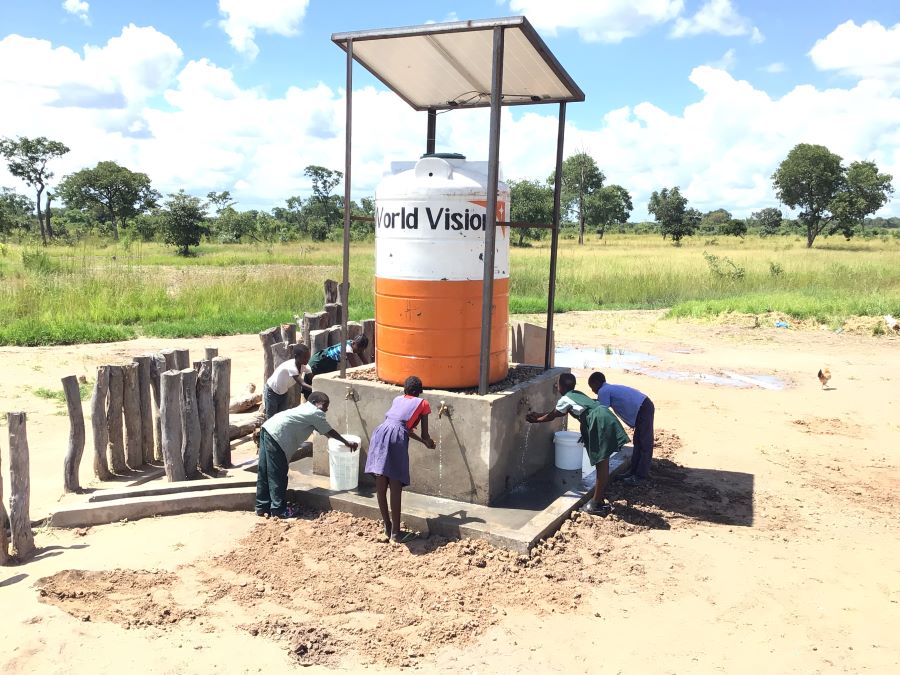SafeWater, a strategic business unit within Grundfos, has announced that it is partnering with World Vision’s Zambia WASH (Water, Sanitation and Hygiene) program to provide cost-effective SQFlex solar water pumps as an easy-to-use and sustainable alternative to traditional hand pumps in rural Zambia.
World Vision‘s Zambia WASH program has already retrofitted 80 new solar pumps, designed by Grundfos, reaching more than 20,000 people, and is planning to reach several thousands more by 2030. The SQFlex pumps make use of renewable energy to efficiently provide clean water by reducing queues and time needed for water collection, as well as providing reliable access to water.
Commenting on their partnership and latest rollout of new pumps, Pia Yasuko Rask, SafeWater’s Senior Director, said: “We are extremely proud to partner with World Vision to support their mission in Zambia. Our solar pump technology is based on years of research and is tailored to the specific local need. Grundfos has an overarching ambition to reach 300 million people with access to clean drinking water by 2030. Through strategic partnerships with world class partners like World Vision, we want to provide water that is both clean and easily accessible, and from a reliable source that is sustainable and efficiently run.”
Operating hand pumps is physically difficult, and they produce only a limited flow of water, making pumping water both a time-consuming and a labor-intensive task for many women and children, who must walk long distances to collect water.
The World Vision system (SQFlex 1-30 and SQFlex 1-70) is typically designed with six taps and a 5,000 liter storage tank, designed to make water available throughout each day, and easy for people, including women and children, to draw and carry home. Each pump serves on average 300 people.
“This really is a game changer for people living in rural areas when we want to retrofit hand pumps with SQFlex”, said Maybin Ngambi, Technical Program Manager for World Vision Zambia. “Most communities could never have imagined a time when they would see water being pumped using solar energy. Having clean water readily available for people to use is something unimaginable in these traditionally underserved communities.”
World Vision is committed to ensuring that the pumping systems continue to run efficiently, working closely with each community and with local government to establish collaborative management approaches and building knowledge and skills transfer through local training programs.
“We work with the communities and local officials to identify the most appropriate maintenance solutions to make sure we can deliver long-term reliable water access. The Grundfos solar-powered systems have proven to be very reliable, providing sufficient levels of clean water for the first time to many of these families,” said Maybin Ngambi.
What makes the water clean to drink? Before the water system is commissioned, the water quality is tested by an approved laboratory by the Zambian government to analyze chemical, bacterial, and other physical characteristics. In addition, World Vision typically installs an online chlorinator in each tank to promote sufficient residual chlorine to deal with recontamination while water is transported, in use or during storage. These measures and the use of materials that meet international drinking water standards ensure access to clean water for the local communities, and also improve hygiene and sanitation levels related to water collection.
Source: Grundfos

